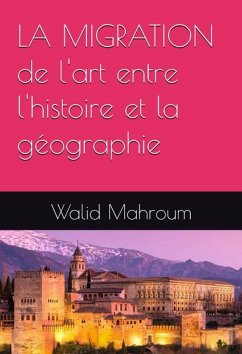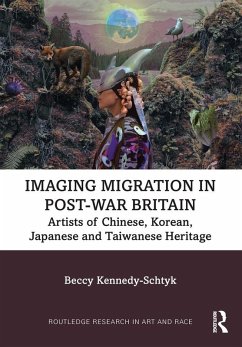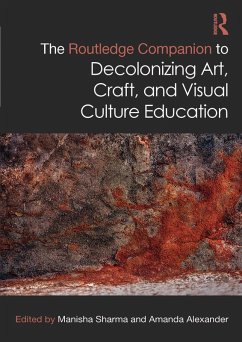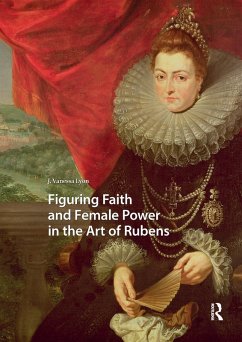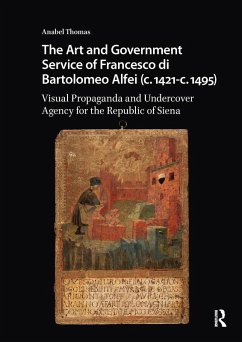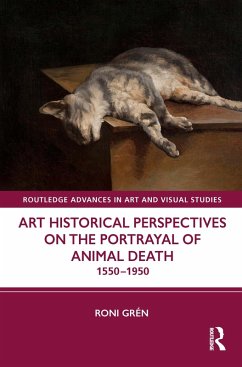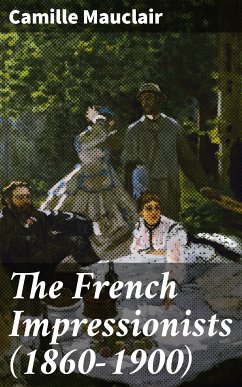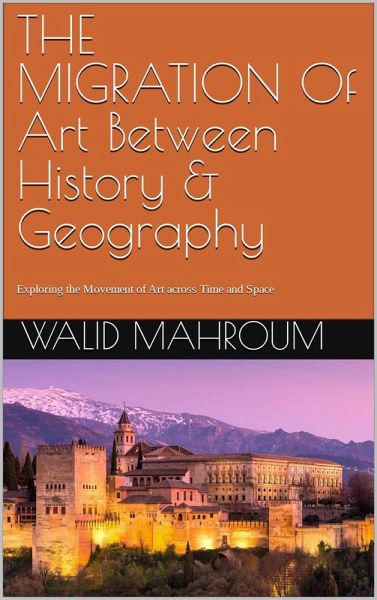
The Migration Of Art Between History & Geography (eBook, ePUB)
Versandkostenfrei!
Sofort per Download lieferbar
14,99 €
inkl. MwSt.
Weitere Ausgaben:

PAYBACK Punkte
0 °P sammeln!
Welcome to "The Migration: Of Art Between History & Geography," a book that explores the fascinating concept of the migration of arts throughout history and geography. In this book, we will embark on a journey that explores how art has traveled through time and space, from one region to another, transforming and adapting as it migrates. We will examine the cultural, social, and political influences that shape the migration of art and how it impacts the way we see and experience the world today.This book aims to introduce the concept of art migration to our modern-day society and highlight the ...
Welcome to "The Migration: Of Art Between History & Geography," a book that explores the fascinating concept of the migration of arts throughout history and geography. In this book, we will embark on a journey that explores how art has traveled through time and space, from one region to another, transforming and adapting as it migrates. We will examine the cultural, social, and political influences that shape the migration of art and how it impacts the way we see and experience the world today.
This book aims to introduce the concept of art migration to our modern-day society and highlight the importance of understanding this process. As we live in a world that is increasingly globalized and interconnected, the migration of art is becoming more prevalent than ever before. In this context, it is crucial to understand how art has traveled across the world, the ways in which it has been transformed, and how it has impacted different cultures and societies.
Through our exploration, we will delve into the migration of various forms of art, including painting, sculpture, literature, music, dance, photography and digital design. We will examine the factors that have driven the migration of art, such as trade, conquest, migration of people, and the spread of ideas and religion. We will also examine how the migration of art has led to the emergence of new art forms, and how it has influenced the development of different cultures throughout history.
This book is designed to appeal to anyone interested in art, history, or geography, and it will challenge you to think critically about how art has migrated and continues to migrate throughout the world. It is our hope that by reading this book, you will gain a deeper appreciation for the richness and diversity of art across cultures and time periods, and understand how it has helped to shape our world today.
This book aims to introduce the concept of art migration to our modern-day society and highlight the importance of understanding this process. As we live in a world that is increasingly globalized and interconnected, the migration of art is becoming more prevalent than ever before. In this context, it is crucial to understand how art has traveled across the world, the ways in which it has been transformed, and how it has impacted different cultures and societies.
Through our exploration, we will delve into the migration of various forms of art, including painting, sculpture, literature, music, dance, photography and digital design. We will examine the factors that have driven the migration of art, such as trade, conquest, migration of people, and the spread of ideas and religion. We will also examine how the migration of art has led to the emergence of new art forms, and how it has influenced the development of different cultures throughout history.
This book is designed to appeal to anyone interested in art, history, or geography, and it will challenge you to think critically about how art has migrated and continues to migrate throughout the world. It is our hope that by reading this book, you will gain a deeper appreciation for the richness and diversity of art across cultures and time periods, and understand how it has helped to shape our world today.
Dieser Download kann aus rechtlichen Gründen nur mit Rechnungsadresse in A, B, CY, CZ, D, DK, EW, E, FIN, F, GR, H, IRL, I, LT, L, LR, M, NL, PL, P, R, S, SLO, SK ausgeliefert werden.




